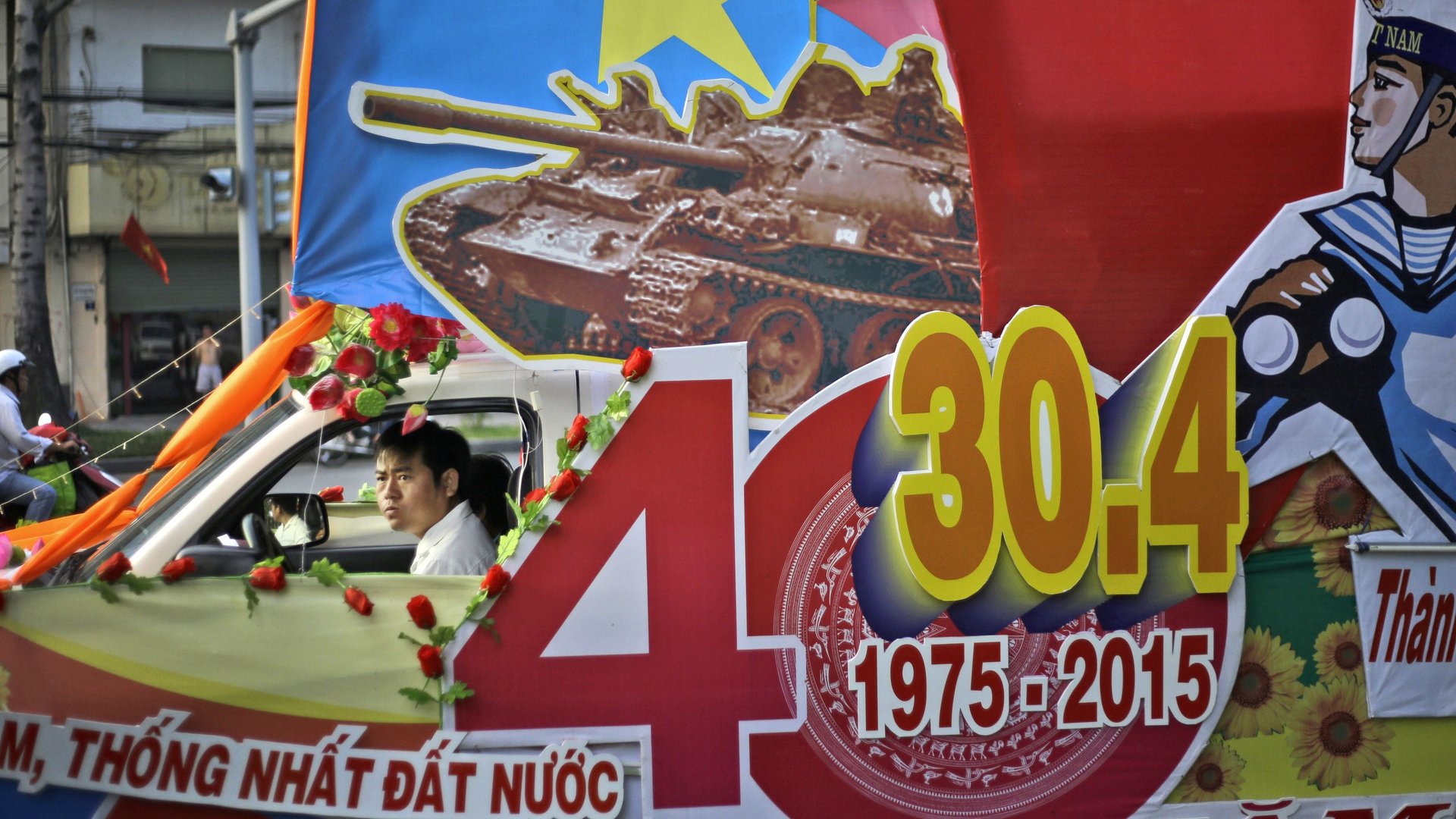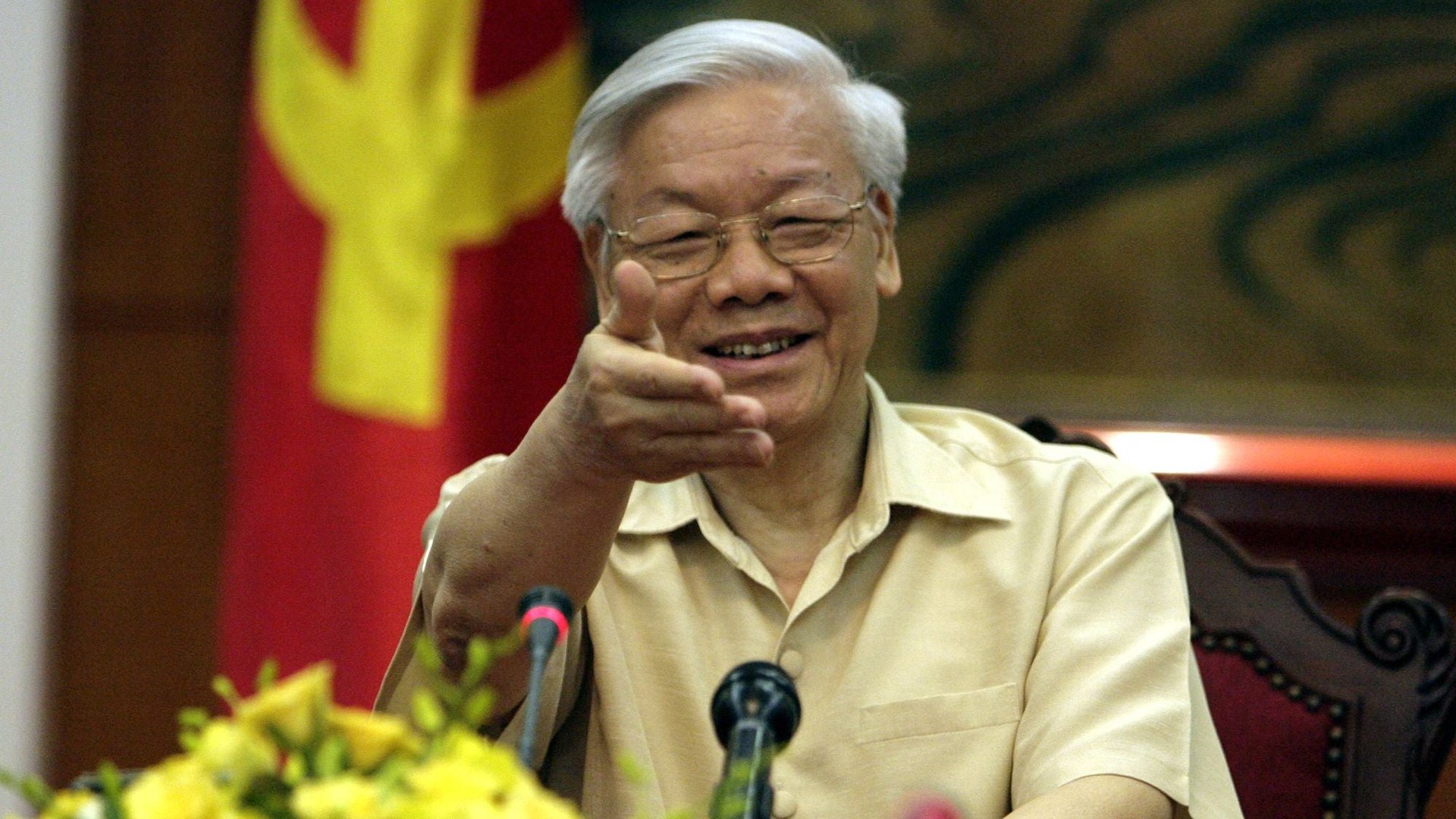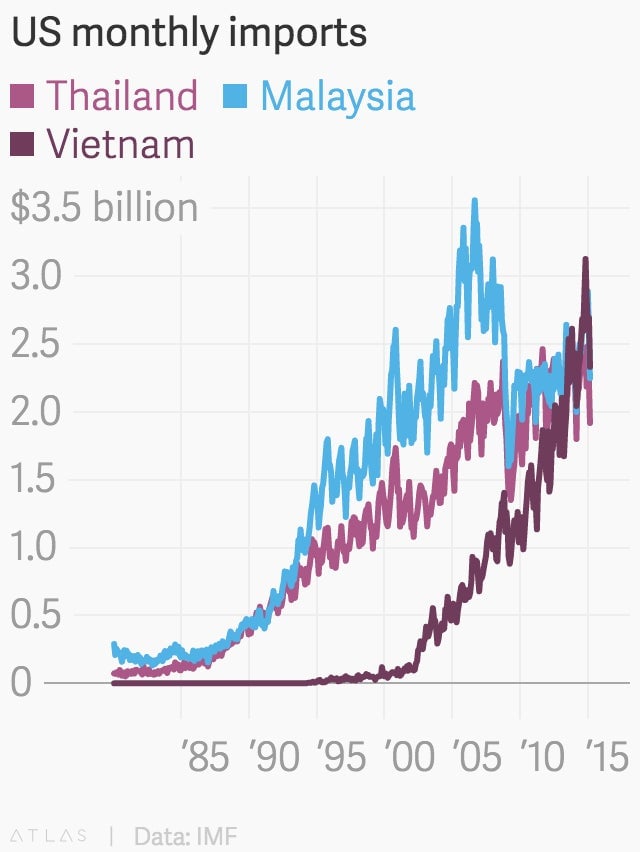Why the US Chamber of Commerce is swooning over Vietnam’s top communist
A little over four decades since North Vietnamese tanks crashed through the gates of the US embassy in Saigon, effectively ending the war there, Vietnam’s top communist—and de facto leader—is receiving a warm welcome during visit to Washington today. The festivities will include a visit with President Barack Obama, as well as a dinner reception with the US Chamber of Commerce.



A little over four decades since North Vietnamese tanks crashed through the gates of the US embassy in Saigon, effectively ending the war there, Vietnam’s top communist—and de facto leader—is receiving a warm welcome during visit to Washington today. The festivities will include a visit with President Barack Obama, as well as a dinner reception with the US Chamber of Commerce.

Despite the bloody war between the two countries—roughly 1 million North Vietnamese, 250,000 South Vietnamese and 58,000 American combatants died—their recent history has been characterized by a brisk exchange of goods. Since the normalization of relations with the US in 1995, trade has soared, with Vietnam overtaking other large Southeast Asian traders with the US.
And while commodities and low-value manufactured goods such as footwear and textiles have long been top Vietnamese exports, the country has been moving up the value chain, with electronics playing a more important role in its export portfolio. Meanwhile, expectations are growing that the Trans-Pacific Partnership trade deal could further spur US investment in Vietnam.
The visit is largely about business, but there’s also a bit of geopolitics involved. Despite similarities to China—another strange mix of authoritarianism, communistic lip service, and raging capitalism—the Vietnamese have increasingly found themselves at odds with the Asian giant in recent years, especially over territorial issues in the South China Sea. That’s provided an opening for the US to try to boost its influence in the region by burnishing ties to its former foe. After all, despite its Marxist patina, Vietnam—by some measures—is now one of the world’s most aggressive free-marketeers.
